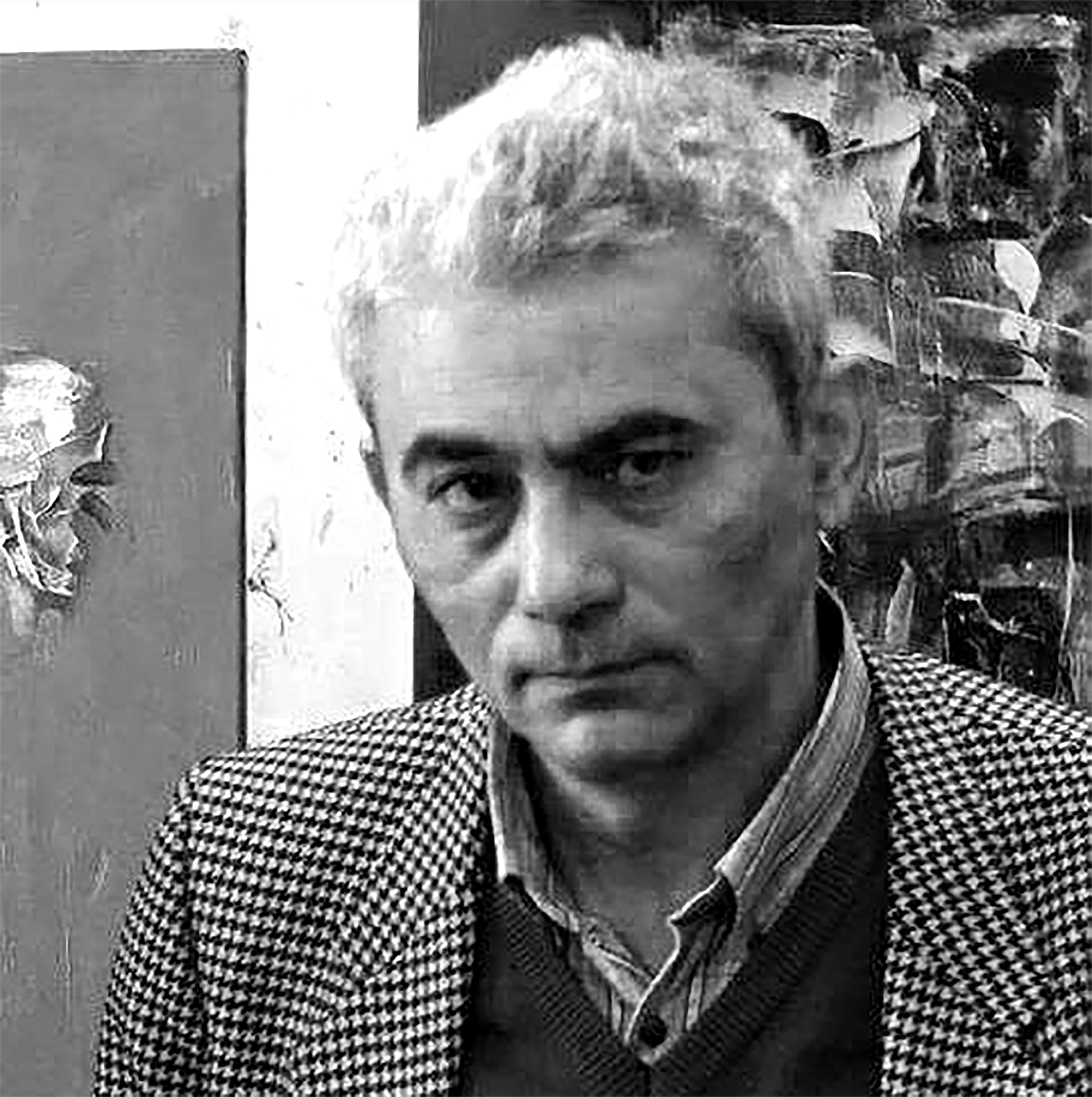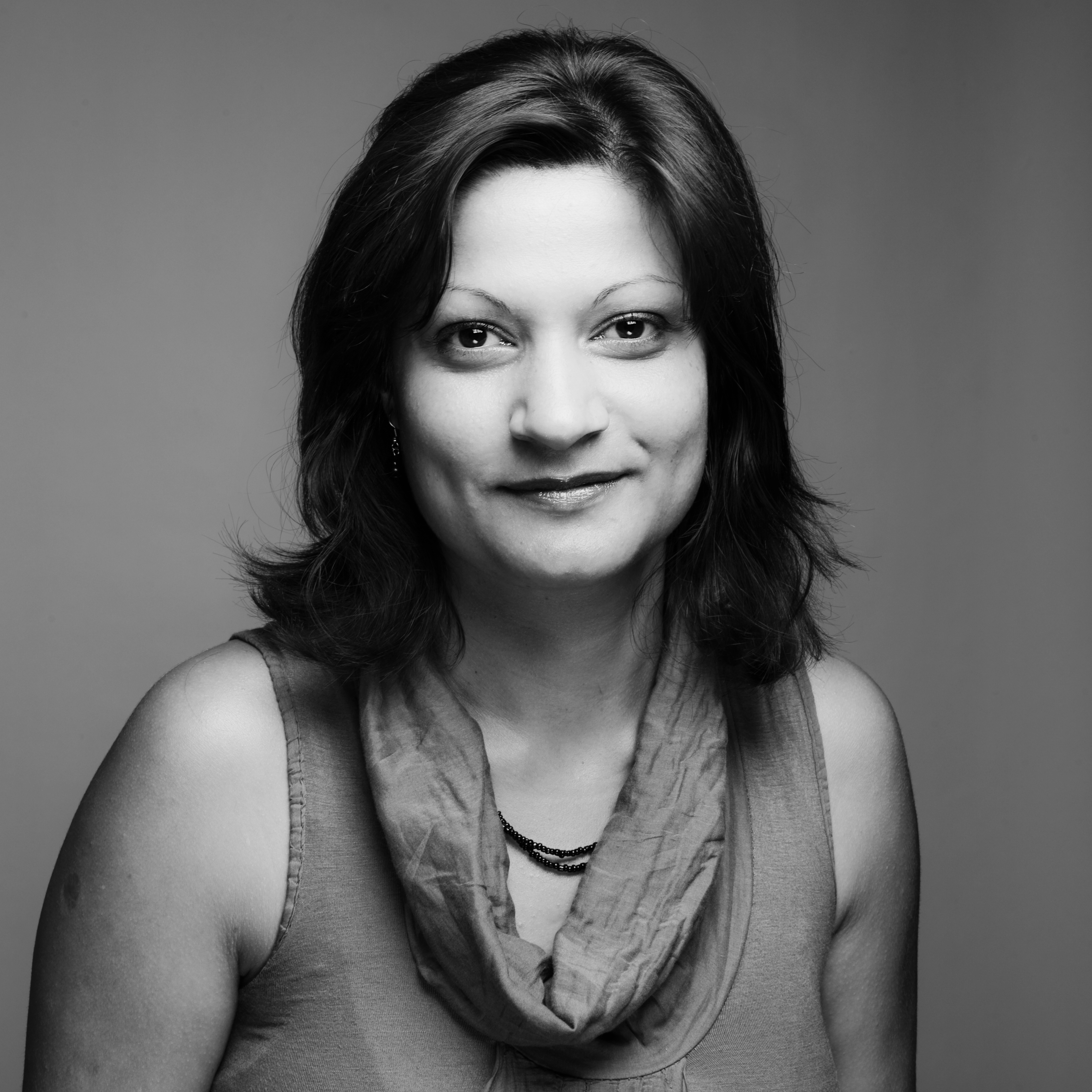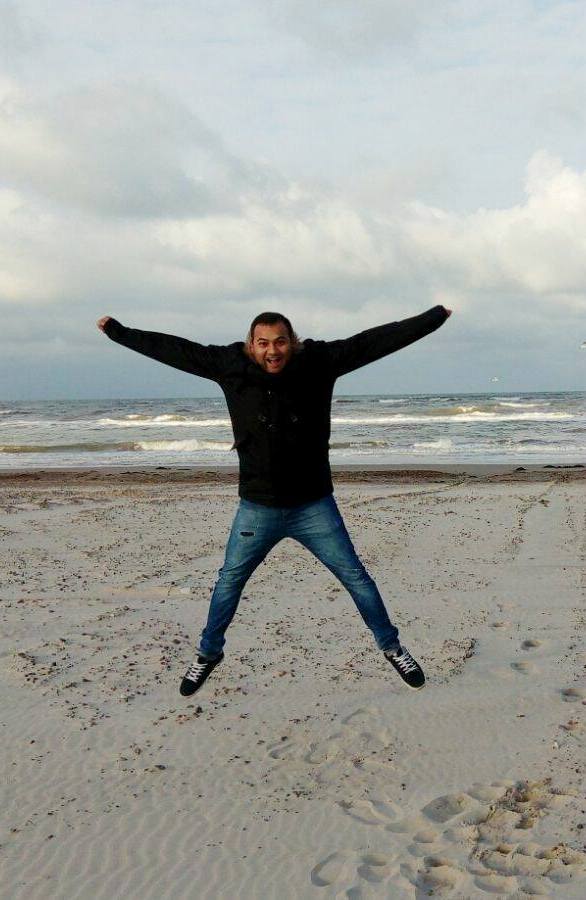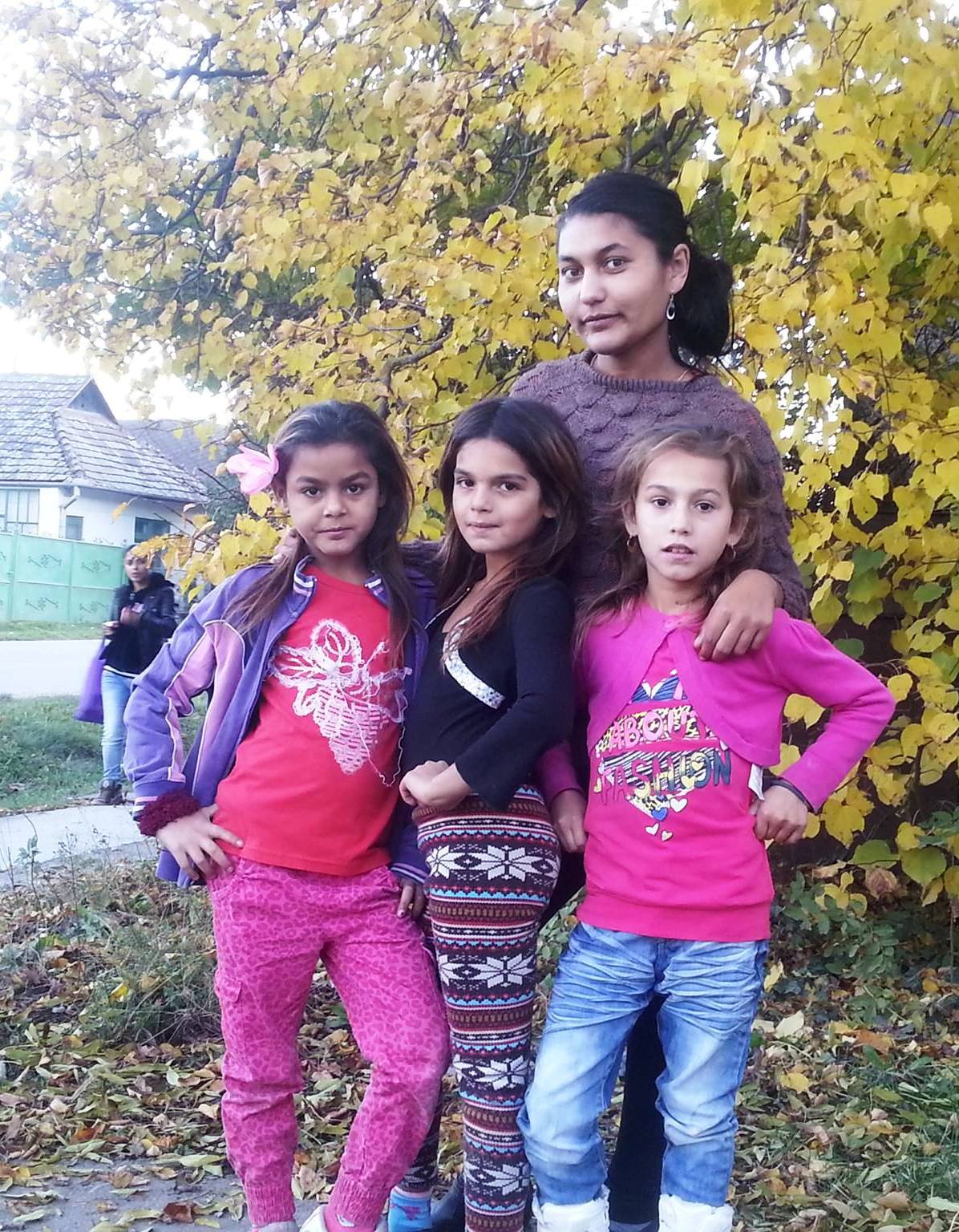RARE - The famous artist, the social worker, the inspector and the organizer
11-05-2018
In the framework of RARE project we share special stories from Romania and Slovakia.
Eugen Raportoru – Roma artist & painter

"I feel joy and honor that I exhibited at the Royal Academy of Arts in London! My biggest exhibition in my own country, at the Palace of Parliament, forced me not to become lazy but to move on. That's what anyone has to do in any field of work. Not to stand still when you get to a point and do not relax after the last step you made. The world is waiting for more from you. That's what I've learned to do: always be a student, permanently seek new things, that’s the way to live!"
"I did not prepare some special work for the Royal Academy, but one evening I decided to put two works online, both equal in size and color. The painting Hearse from Sulina went past the first commission, and then I sent it to the UK by mail and received the news that it would be exhibited. The Royal Academy Commission is made up of important critics from around the world, which means that the exposure at the Royal Academy is an international recognition. It's nothing fixed, this is not your average gameplay. "
Eugen Raportoru has a masters degree at the National Art University of Bucharest, in the Painting section, and is the only Romanian artist of Roma origin to have exhibited his works in London at the Royal Academy of Arts, the Vatican under the aegis of UNESCO, and in Scandinavia at the Ethnic Museum in Oslo and in Stockholm through the Roma Party. The artist has exhibited in galleries and exhibitions throughout Romania, where he made his debut at the age of 14 at Griviţa Cinema in Bucharest. In Romania’s capital, Raportoru has exhibited at the Palace of Parliament, in the Brâncuşi Hall, at the Simeza Gallery, at Art House, at GoldArt, but also in the cities of Sibiu and Sinaia.
The artist is fascinated urban landscapes and his paintings have scenes from Bucharest, Venice, Balchik and Paris and this is why his nickname is "The Painter of the Slums".
After finishing the Tonitza High School, Raportoru took life seriously and married early beginning to support his family as a housepainter on construction sites. He found his spiritual food and inspiration in Bucharest's pubs and Emir Kusturica's films and at the age of 40 he decided to go to college. His mentors were artists professors such as Mihai Cizmaru, Ion Brodeala, then Corneliu Baba and Marcel Bunea, whose workshops he frequented always bringing with him his works for "evaluation".
Prizes:
2011 - The Painting Prize of the Union of Fine Artists - the Arts Exhibition in "Bucharest"
2009-2011 - Unicredit Ţiriac Scholarship
“In my paintings, I explore the urban landscape, which is the main character for me. In all cultures, buildings are the image of the soul's visible expression. House for example have a history, a past that hides in each sign of its decadence, but it will pulse stronger in every shade of the facade’s color, in every slip of the wall, as if its destiny fulfilling would be its non-being. Houses have a human destiny. They grow, age and rise to the sky. The house is both the INSIDE and the OUTSIDE. I live in it and I am also passenger outside it. My house paintings are not about their architectural beauty. Their beauty will reside in the surprising painting itself, which instinctively refuses even the handiest conventions.”
Oana Parnica-Nicolae – Social services Inspector

"I come from a mixed family, where my mother is Romanian and my father was half-half. We are six brothers at home and three of came out black and three white, I think our mother made us like this so we would not be upset. I was wondering why is my sister white and I'm black, so I would steal the kitchen dishes whitener to rub it on my face to bleach it, because I thought my mother didn’t wash me well. "
All six of us were sent to school, but a very few of us managed to finish it. I was lucky to have an extraordinary good teacher who kept nagging on my parents to keep me in school. My mother used to lock me in the house but I would slip out of the window as we lived at the first floor. All the time I had to learn more than others to be accepted around. When I had to go to college, I met a man from the Roma Party who helped me. Some Germans came to us in Ploiesti to talk to the Roma there and they needed a translator, this man knew me and called me to be a translator. And then he asked me what I want to do when I grow up. And I said I want to go to college, I do not care where. I would have wanted to study Law, so I said I wanted to be a lawyer.
In Bucharest, we were about forty trying to pass the exam to get to college, but of all forty only six of us got in. We had the habit of studying and telling each other every lesson at night and I used to make bets with my colleagues who can learn more lessons. This is how I managed to get to college.
“A few years ago I worked on a labeling firm and after just two weeks I managed to get up in the hierarchy and everybody was giving me the elbows and asking who I was. Some may find it impossible to finish college at the state, or be smart, to be ahead at something. And now, I finally decided to work in my own field because for ten years I worked as an accountant and secretary. This wasn’t the job I studied for. I decided I wanted to work in my field. I enjoy a lot helping other people and that's what I can and want to do. I work in the General Direction of Social Assistance of Bucharest.”
David- from Slovakia

Dávid remained faithful to his boyhood ideal: he wanted to help people. To do it professionally, he studied Master´s Program, Social Work in Roma Settlements at the Catholic University in Ružomberok, Slovakia.
After he graduated from University, Dávid continued working with Roma people, in ETP Community Centre Podsadek in Stará Ľubovňa.
Dávid does not like the approach taken by some students of social work, who leave the school to find an office job: “First I need to try the fieldwork, to see the bottom. I want to be out on the streets to listen to the people and see their real problems. I am convinced that without that, it is not possible to do social work.”
Dávid has set three priorities in his life: education, employment and housing. He considers these things to be interconnected: the education will ensure employment, thanks to which Dávid will be able to provide decent housing for his family.
At present, Dávid works as the leader of the Community Center. He lives with his wife and little daughter in a small apartment, rented by the City of Stará Ľubovňa. His new ambition is to purchase a bigger apartment that will better meet the demands of his young family.
Jozka-from Slovakia

Jožka has not completed the ninth grade of the primary school.
‟I was held back because I could not speak a word of Slovak and I did not understand the teacher,“ she explains.
Jožka´s view of the surrounding world has been blocked by a high concrete fence. The Municipality built it to fence in the poor Roma houses and shacks, in which more than eight hundred people live. There is just one well available for all the inhabitants. Some families live close to the well but the rest have to carry the water a long way. The shacks are small and modest, some pitiful, crammed and with bad hygiene.
Jožka was born into a family with ten children. While both Jožka´s parents had their jobs, they were able to make ends meet but since the day they lost their jobs, they have barely been surviving. Not one of their children, or their partners, currently has a job; they only perform the so called activation works for the Municipality. Jožka is the only one in the family who is working.
‟I am the richest family member,“ she says, happy about her modest income.
Since 2014 when Jožka became the Assistant in the Community Centre, her position in the settlement has changed.
‟Half of the people respect me and think I deserve it, the other half are envious...“
The attitude of the latter makes Jožka sad. She would like to help everyone to live better and to always have food and basic necessities. At the same time, she knows that some of the people had already had a chance to work but chose drinking and glue-sniffing instead, leaving their children to suffer.
Jožka would like to save the children living in the settlement from the life they see at home, and, therefore, she is so passionate and devoted to helping them. She is patient and loving, but also strict when needed. She helps them with the Slovak language, assists them in the after-school club and studies and plays with them in the Community Centre.
She also hopes for decent housing. She does not want to go on dragging the heavy water buckets forever.
‟Once I have my own flat, I will take my mother, father and disabled siblings with me. I wouldn’t be able to live happily, knowing that they suffer,“ Jožka talks about her plans. When she saves enough money, she plans to start her own family.
‟I want to be as good a mother to my future children as our mother is to us,“ Jožka says. Their mother cannot read or write, but Jožka holds her in high esteem, always treating her with love and gratitude.
